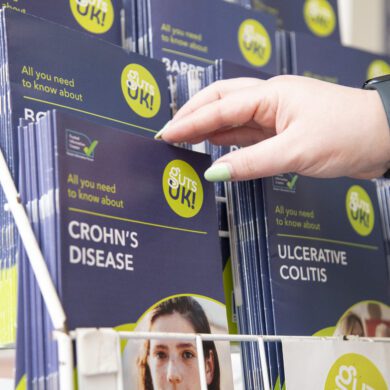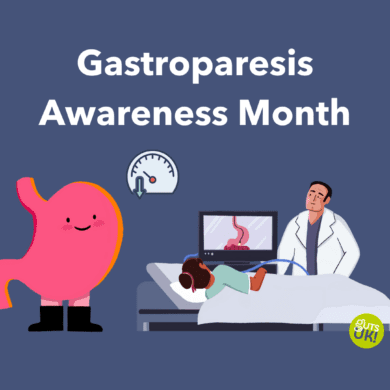Jessie’s Story – Gastroparesis
"Gastroparesis has stolen my identity, but I do try to keep positive where I can."
Tell us a little about yourself
“I’m Jessie, and I’m 29. I live in West Sussex and have two gorgeous cats called Shadow and Boris. I have a younger sister and older brother. Before I became poorly, I used to love open water swimming.”
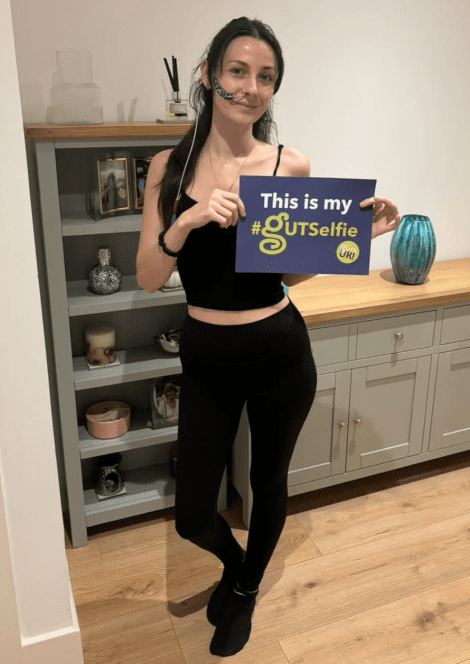
When did your gastroparesis symptoms begin?
“In 2022, I started experiencing bloating and awful pain when eating. I was rushed to hospital and from that day forward, I couldn’t keep food or drink down and lost half of my body weight.”
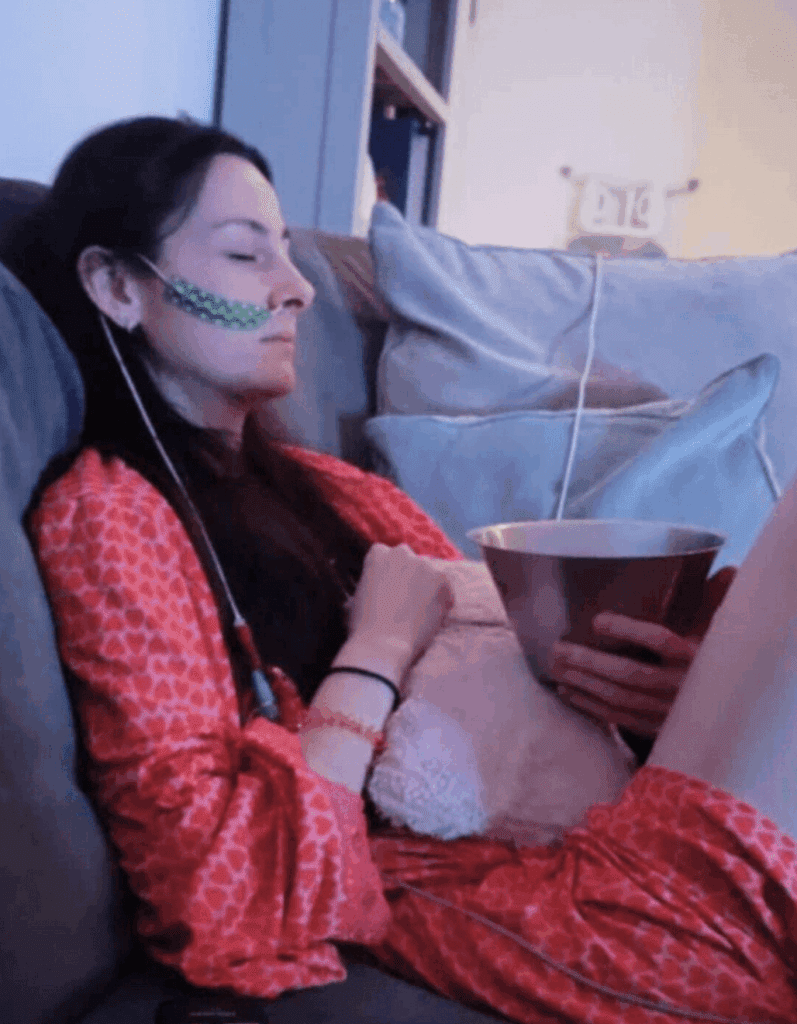
When were you diagnosed with gastroparesis?
“I had medical tests which revealed my gallbladder was only working at one percent. Doctors thought it was to do with this, so I had my gallbladder removed, but this only made my symptoms worse. In 2023, I had a gastric emptying scintigraphy (GES) (a medical test used to assess how quickly food leaves the stomach) which revealed my digestive transit was severely delayed. I was diagnosed with gastroparesis (which translates to stomach (gastro) paralysis (paresis).”

How did you feel when you received your diagnosis?
“It was such a bittersweet feeling. I was relieved to know that something was wrong with me, and I’d found out what it was, but at the same time, it was completely overwhelming. It took a while to process my diagnosis and doctors told me there isn’t a lot of treatment for it, which made me feel really anxious about the future and how I was going to live with my diagnosis.”
Is there an experience with gastroparesis that sticks in your mind?
“I shared my story with ITV News recently, and since then, I’ve received such an outpouring of love and kindness from total strangers. People have shared their stories with me, and it’s made me want to support others even more. We are all warriors!”
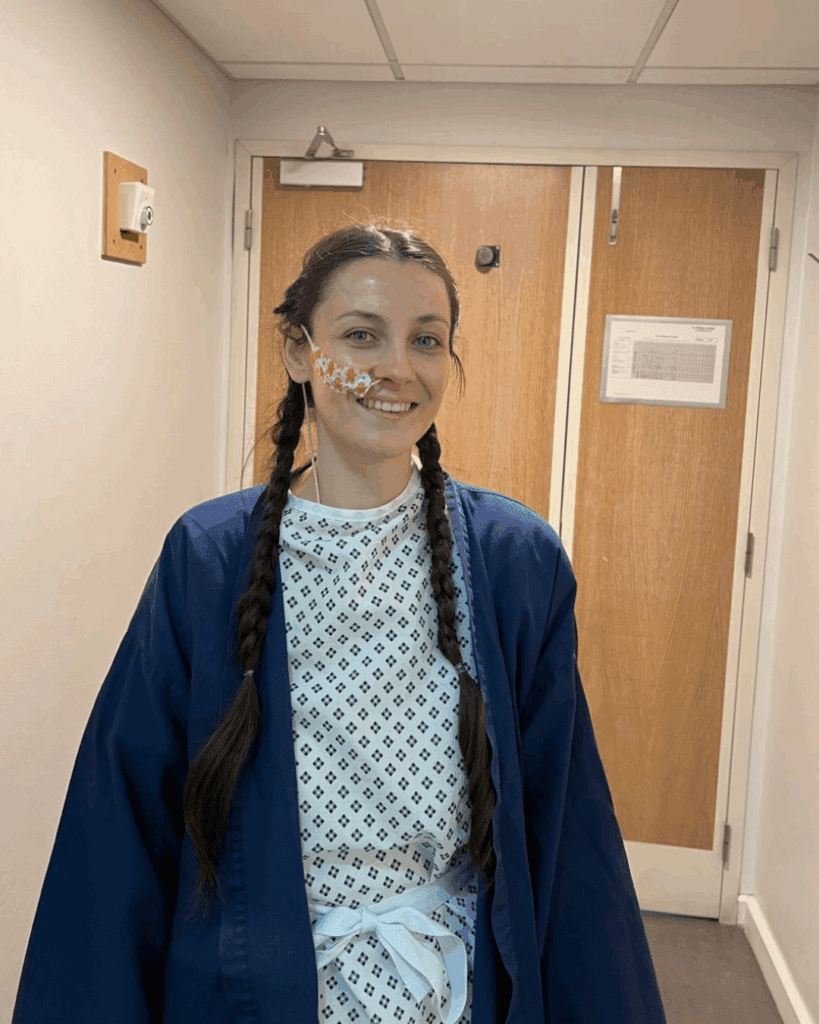
How does gastroparesis affect you in your daily life?
“I rely on a nasojejunal (NJ) tube (a soft tube which goes up the nose and into the small bowel) and receive nutrition via this for 20 hours a day. I also have a gastric pacemaker (a device which stimulates the stomach to empty at a set rate). I’m unable to work and don’t really leave the house. Gastroparesis has stolen my identity, but I do try to keep positive where I can, though it’s not easy.”

Note: A gastric pacemaker is just one treatment option for gastroparesis and availability and suitability will depend on the individual patient. This story reflects the lived experience of one person and is intended to raise awareness of their own personal experience of living with gastroparesis.
What would you tell someone who has just been diagnosed with a digestive condition, like gastroparesis?
“You know your own body best, always. Listen to your own body and advocate for yourself. Surrounding yourself with support is also key. I have a very supportive family and fiancé and they are my absolute rock.”
Why are you sharing your story today?
“To raise vital awareness and support others going through something similar. I want people to know that they can reach out to me. I use my Instagram and TikTok accounts to share my story.”
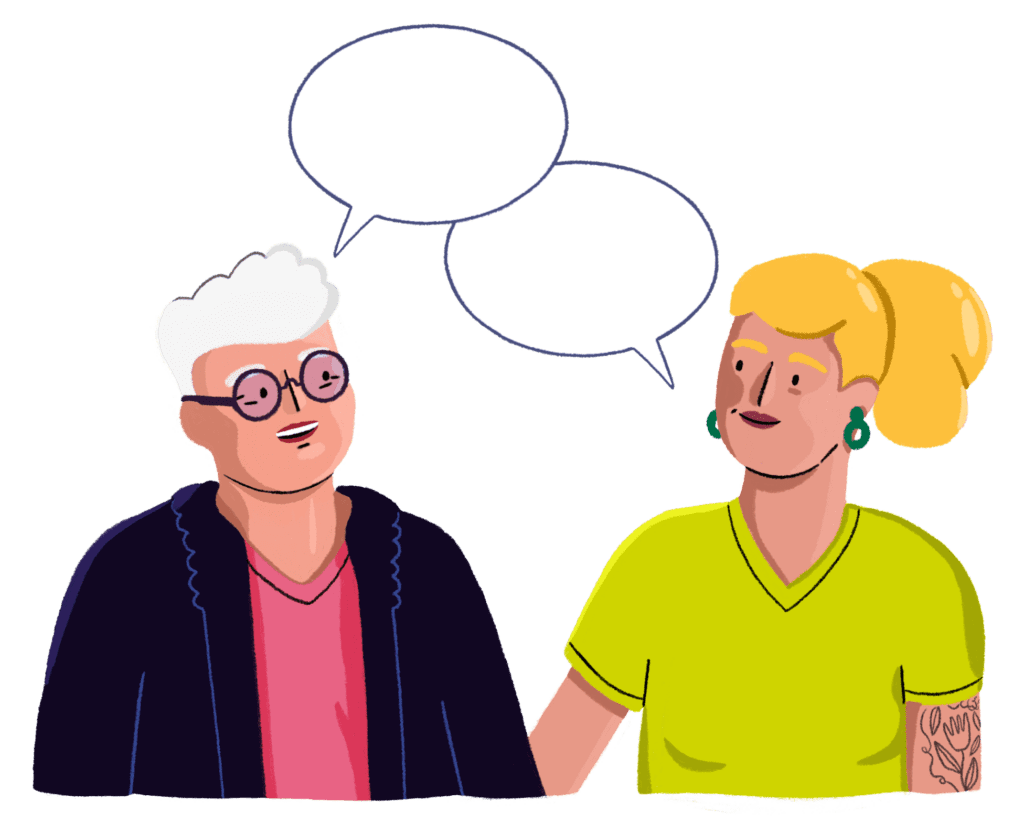
What are your hopes for the future?
“All in all, to find that miracle cure! But better treatment that would help to improve my quality of life would be amazing.”
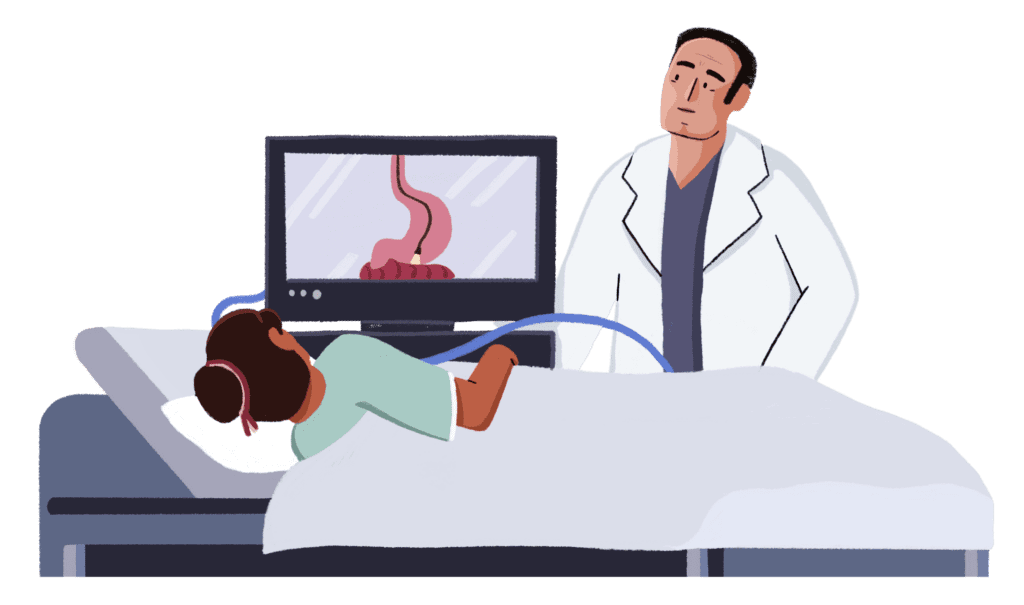
About Guts UK
Guts UK is the national charity for the digestive system and the only UK charity funding research into the whole digestive system.
People are suffering. People are dying. All because of a lack of knowledge about our guts. Guts UK exists to change that.
With new knowledge, we will end the pain and suffering for the millions affected by digestive diseases. Please consider donating today. Your donation will help fund research leading to earlier diagnoses, kinder treatments and ultimately, a cure.

